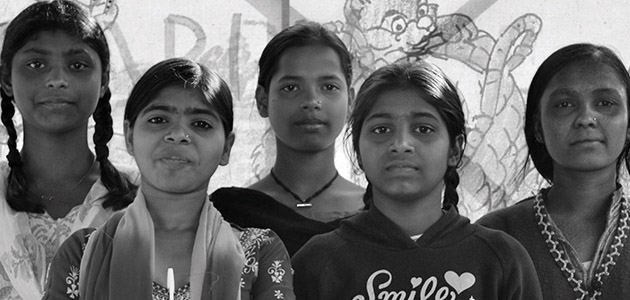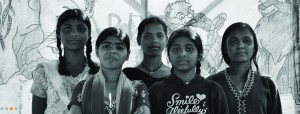The IT sector is booming inIndia. However, marginalized women, who have so much potential, are under-utilized. Atlanta’s Nita Umashankar and ASSET, the foundation she set up with her parents ,empowers women- especially those who are victims of human trafficking and ensuing sexual exploitation- with technical skills, including English and computer literacy.
BY SUPRIYA D G
Atlanta,GA: The website of ASSET India Foundation, short for Achieving Sustainable Social Equity through Technology underplays the impact made by Nita Umashankar whose roots led her to move away from the confines of a privileged life and make a difference in the lives of those who were not fortunate. Nita Umashankar’s time spent inIndiarevealed to her that women were not only primarily responsible for households but also caught in the endless cycle of poverty. She says, “We tried to marry the needs of an underprivileged community with the needs of a growing economy. The IT sector was/is booming inIndia. Marginalized women are under-utilized. They have so much potential. We thought that empowering them with technical skills, including English and computer literacy, will help them in both the short and long-term.”
Currently a professor of Marketing atBusinessSchoolinGeorgiaStateUniversity, Nita Umashankar decided to set up ASSET in 2007 with her parents Ray and Rajini Umashankar. ASSET works with NGOs such as Prajwala and Unnati among others to combine local community knowledge with technological expertise and support that is provided by it.
Explains Umashankar, “My role is in website content, curriculum development, overall strategic direction for ASSET. Training includes English, Computer skills, counseling as needed, specific skills needed by employers. Funding comes from individuals, foundations and fundraising competitions.” The foundation boasts of support from companies such as Dell, IBM, Infosys, TATA Consultancy Services, and Intel, Global Giving, Soonch Foundation, Saxena Foundation, and Prasad Family Foundation.
Training Centres inDelhi,Hyderabad, Forebesgunj, Chennai andBangalorehave provided training to more than 1000 girls. More than 600 girls have been placed in entry level IT and retail jobs. After receiving training nearly 15 percent of the girls went on to pursue higher education.
Nita Umashankar decided to focus on women and children who are victims of human trafficking and ensuing sexual exploitation. According to ASSET, an estimated 7 million prostitutes who live inIndiaand are subject to a life of abuse and exploitation. 200 women and children enter the trade each day, most of them against their will. Lack of economic opportunities force many an unwilling and unwitting victim into trafficking. According to the US State Department it is estimated that nearly 600,000 to 800,000 people are trafficked across international borders each year with 80% of them being women and girls who are sexually exploited.
ASSET works with local groups such as Unnati and Prajwala in developing a curriculum to provide vocational training to many who are underprivileged and unable to pursue their education or find work.
Meenu Seshu of Sangram, finds the approach to abolishing sex work problematic. Sangram is an NGO based that works with women in prostitution and sex work is based out of Sangli which has the highest incidence of HIV/AIDS, after Mumbai. Sangram helped find VAMP (Vaishaya AIDS Mukabala Parishad ) a collective of sex workers that uses peer intervention to spread ideas about safe sex and work on advocacy issues. Together they ensure that children are kept away from sex work by finding life solutions that empower them and then make their choice as adults.
Thus, while an immediate job or even the promise of one, is a much needed motivation, the need for legal intervention in what is a largely illegal network of pimps, prostitutes and clients cannot be ignored or understated. There is a growing dismay with the way the ideals of a welfare state have given way to a notion of “progress” that neglects its underprivileged by primarily denying them the access to and availability of opportunities to live a life of dignity, independence and self- reliance. The positive outcome, where the state may have failed, is the rise in both individual as well as corporate social responsibility that tries to use an inclusive model to merge opportunity for all with economic growth.







